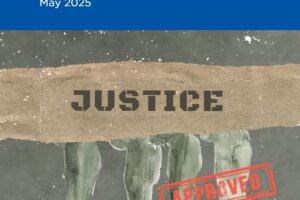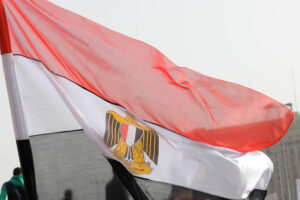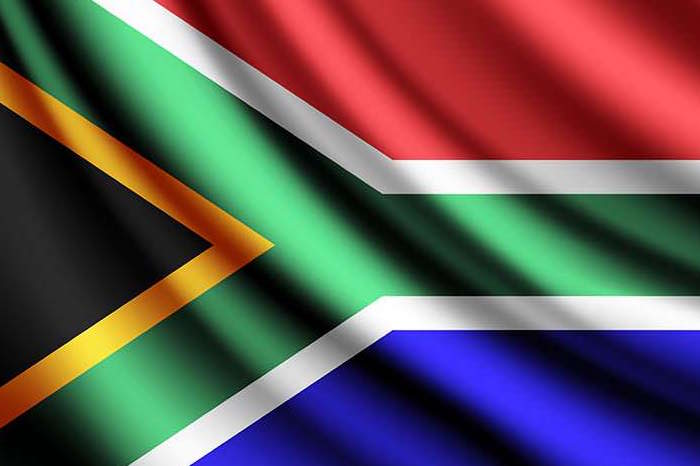
Nov 4, 2019 | News
The ICJ today expressed its grave concern at the conduct of police forces in their enforcement of a court order to remove refugees and asylum seekers from the offices of the United Nations High Commission for Refugees (UNHCR) in Cape Town on October 30.
Police appeared to be using excessive and unlawful force, resulting in injuries to some protestors.
The ICJ called for a prompt independent, impartial, and through investigation into the police conduct, with a view to holding account officials responsible for any ill-treatment and to prevent such methods of policing to recur.
While trying to remove largely peaceful protestors from the premises, police fired rubber bullets and stun grenades against refugees who were protesting in the streets of Cape Town last week. A video clip widely shared on social media showed police ripped a baby from a woman.
The court had granted an interdict to remove the group in Cape Town on October 18 at the Cape Town Magistrate’s Court following an application by the building landlord to evict the group. More than 100 protestors were arrested and released on warnings.
“The way refugees were treated in Cape Town on Wednesday is shameful. South African authorities should be acting to protect migrants from the xenophobic violence and threats they have been experiencing, not to perpetuate them,” said Arnold Tsunga, ICJ Africa regional director.
Refugees and asylum seekers had staged a sit-in outside the UNHCR offices in Cape Town and Pretoria for four weeks now, pleading to be resettled outside of South Africa, claiming that they felt unsafe. They said that recent attacks on foreign nationals left them feeling unsafe in South Africa. (Read the ICJ statement on the attacks here.)
In a statement, the UNHCR said the organization had received concerns of personal safety, access to documentation, challenges accessing services, and lack of job opportunities from the asylum seekers and refugees who had been camping outside of its offices.
The statement also indicated that some of the protesting group had demanded resettlements, which were only available for a limited number of vulnerable refugees. The UNHCR said it had been engaging with the refugees and asylum seekers since the protests began, encouraging them to participate in constructive dialogue to address their grievances and find a peaceful resolution to the situation.
“We call on South African authorities the United Nations Human Rights Council (UNHRC) to urgently address migrants’ concerns in a constructive and amicable manner before the situation escalates further,” Tsunga added.
Background
South African law and international law forbid the unnecessary and disproportionate use of force and protect people from ill-treatment. .
The UN Basic Principles on the Use of Force and Firearms by Law Enforcement Standards provides that law enforcement officials must use restraint and may use force only where only where strictly necessary, and any such force must be proportionate to the legitimate object, such as making a lawful arrest and protecting the lives and safety of others.
South Africa is party of the African Charter of Human and Peoples Rights and the International Covenant on Civil and Political Rights, both of which guaranteed from torture and cruel, inhuman or degrading treatment, including that resulting from unlawful use of force.
Contact
Arnold Tsunga (Director): c: +26 37 7728 3249 e: arnold.tsunga(a)icj.org
Shaazia Ebrahim (Media Officer): c: +27 71 670 6719 e: shaazia.ebrahim(a)icj.org
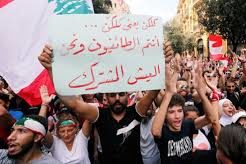
Oct 25, 2019 | News
Today the ICJ condemned the response of Lebanese security forces to predominantly peaceful protests that erupted across Lebanon on 17 October following the government’s attempt to introduce a daily tariff on voice calls made through applications such as WhatsApp.
The ICJ called on the Lebanese authorities to respect and protect the right of protestors to peaceful assembly and freedom of expression; to refrain from using unlawful force to disperse protests and ill-treatment of protestors and; to effectively investigate and ensure accountability for any abuses committed in connection with the protests.
Security forces in Lebanon have employed excessive and unlawful force against protestors, amid nationwide dissent over Lebanon’s worsening economic crisis.
NGOs and video footage circulating on news and social media platforms document a number of disproportionate measures used to disperse crowds and quell the unprecedented protests, including by firing tear gas, beating protestors and forcefully removing them from their peaceful sit-ins.
“The Lebanese authorities must ensure the effective investigation and prosecution of all abuses committed in the context of these protests by State or Non-state actors, including the arbitrary use of force, arrests and ill-treatment,” said Said Benarbia.
With respect to the use of force, the Lebanese authorities are bound by international law and standards, which stipulate that the use of force by law enforcement officials is only permissible when it is a last resort, is strictly necessary and is used to the extent required for the performance of their duty.
Attacks by armed groups affiliated with the Amal Movement and Hezbollah have also been reported by local organizations and media.
At least 15 protesters were injured in Nabatieh and six persons in Riad al-Solh and admitted to hospital. Additional violent attacks on protesters, allegedly attributed to the Amal Movement, also took place in the city of Soor.
Background
The protests purportedly broke out in response to years of rampant corruption, unemployment and poverty.
By 18 October, protests were characterized by calls to oust governmental authorities perceived as Lebanon’s ruling elite, including the president, government and legislative authority, and fundamental change to the sectarian political system.
In an attempt to diffuse the increasingly tense situation and appease protestors, Prime Minister Saad Hariri announced the adoption of a raft of economic reforms on 21 October.
Anti-government protests however, which have now entered their ninth consecutive day, have gained considerable momentum.
Lebanon is a party to the International Covenant on Civil and Political Rights and the Arab Charter on Human Rights. Both of these treaties require the State to guarantee and protect the rights to freedom expression and freedom of assembly and freedom from torture and other cruel, inhuman or degrading treatment or punishment, including through the unlawful use of force.
Lebanon-Protests-News-web story (story in Arabic, PDF)
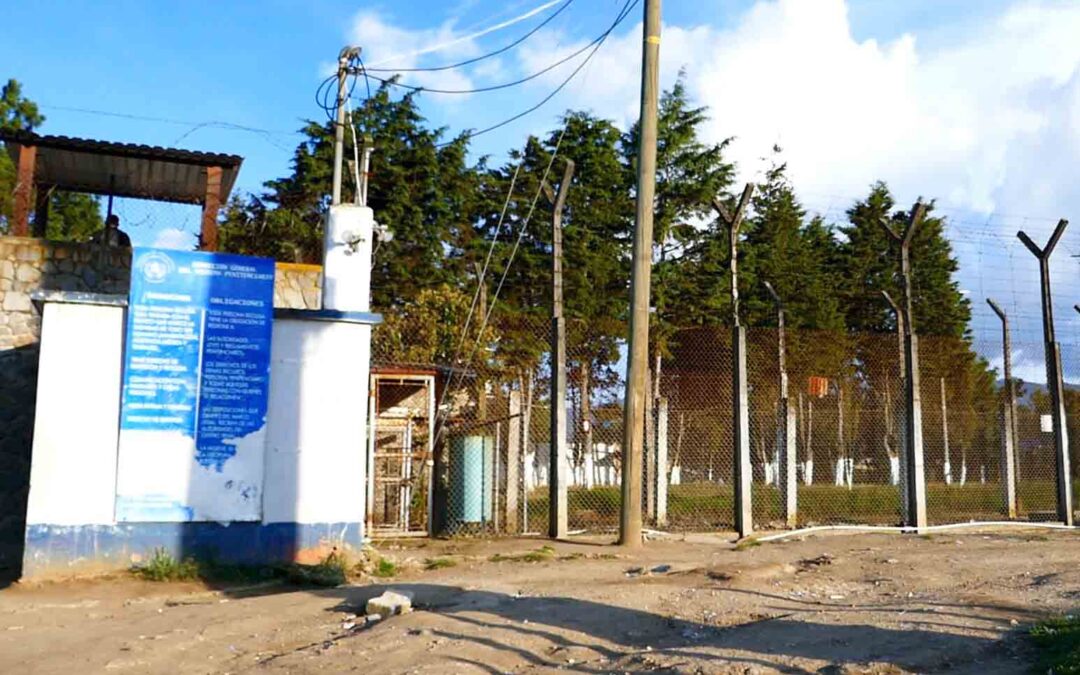
Dec 18, 2017 | Multimedia items, News, Video clips
Leaders of indigenous communities in Guatemala, seeking to protect their lands and natural resources from the negative impacts of business operations and infrastructure projects, have been charged with alleged criminal offences and in some instances arbitrarily detained.
This response is designed to silence voices of protest and legitimate demands for free, prior and informed consent for infrastructure or other projects in indigenous communities.
The video includes interviews with Ramón Cadena, ICJ Director for Central America, two indigenous traditional leaders, who have been the victims of arbitrary detention, and a women community leader, explaining the impact of the detention on the family and the whole community.
The criminalization of human rights work is a phenomenon whereby community leaders are charged with different criminal activities because of their opposition to a development model based on extractive industries or the privatization of essential social services.
This development model affects the natural resources (water, land and the environment) on indigenous peoples’ territories.
This is a global phenomenon and is particularly acute in Guatemala.
The exploitation of natural resources, such as open-cast mining and the operations of extractive industries in the territories of indigenous peoples, is one of the main reasons which are behind the crackdown on social protest and human rights work.
The different communities that have been affected seek to defend their territories and oppose the different forms of exploitation of the natural resources found on their territories or in the surrounding areas because it can affect the water supply, the land and the environment.
A number of leaders have been killed because of their opposition to these projects.
Some family members of those killed have in turn taken on the task of opposing these projects and they have also been charged with criminal offences.
In Guatemala, there is also an intense social conflict because of the way in which electricity services are delivered.
As a result of the privatization of the service in 1996, the Guatemalan State has granted concessions to national and international companies to provide electricity services.
Over the years, many users have complained about the poor quality and high cost of the services that these private companies provide.
The National Electricity Commission has failed to respect its legal duty to “ensure that the obligations of the concessionaries and contractors are fulfilled and to protect the rights of users,” which many discontented users have demanded.
The social protests concern the three different phases of electricity production: the generation of electricity, involving the construction of hydroelectric dams by multinational companies that impact on indigenous peoples’ territories, the electricity transmission grids, and the electricity services.
Because of this situation, many electricity users have declared that they are in resistance, citing article 45 of the Guatemalan Constitution that states: “It is legitimate for the people to resist in order to protect and defend the rights and guarantees enshrined in the Constitution.”
Acting on this Constitutional protection has led to human rights attacks on many community leaders, lawyers and human rights defenders.
The ICJ supports access to justice for persons who are victims of these human rights violations.
The ICJ supports lawyers who defend these victims of the criminalization of social protest; it carries our trial observations in significant cases; it promotes dialogue between the communities and the relevant State authorities as well as the local Mayors; and in some cases, it supports submissions before the Constitutional Court.
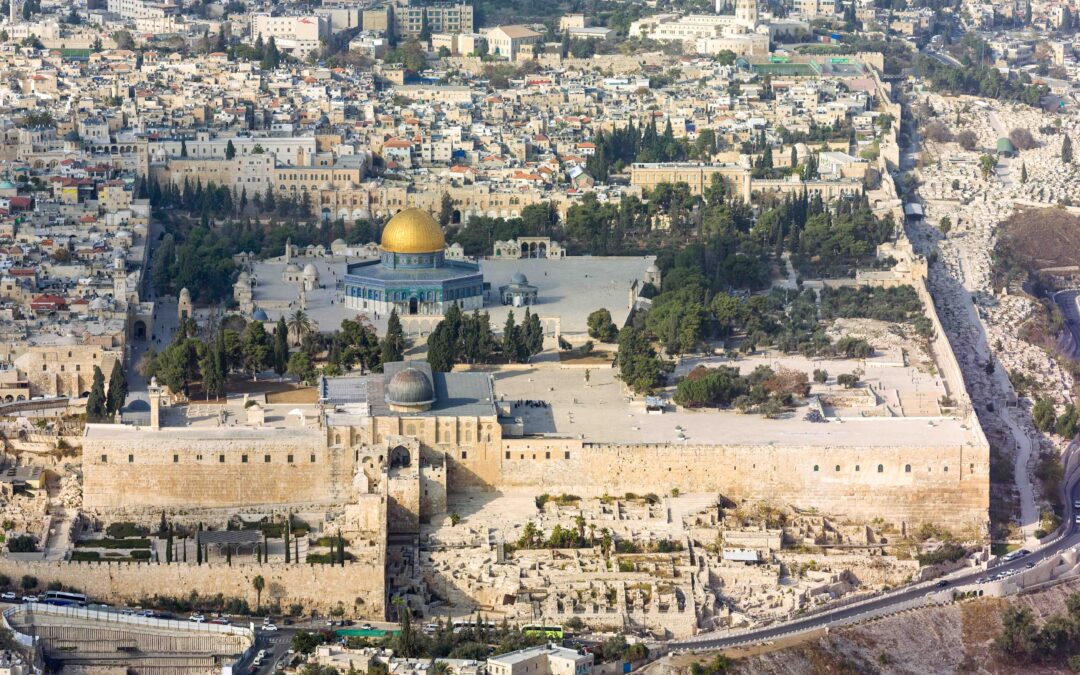
Dec 8, 2017 | News
US President Donald Trump’s declaration recognizing Jerusalem as Israel’s capital and indicating an intention to move its embassy there, dangerously ignores long-standing international law, the ICJ said today.
Numerous United Nations Security Council’s Resolutions have reiterated the inadmissibility of the acquisition of territory by war, and have urged the withdrawal of Israel armed forces from territories occupied in the 1967 conflict, including East Jerusalem.
Trump’s announcement turns a blind eye on this legal reality and the related 50 years of occupation.
It also implicitly condones Israeli policies and practices that aim at altering the character and status of the Palestinian territory, including through the annexation of East Jerusalem, particularly by failing explicitly to similarly endorse Palestinian claims to East Jerusalem.
“Trump’s declaration cannot form the basis for any alteration of the status of Jerusalem under international law. However, it has the potential of provoking and fuelling a new cycle of violence in the region,” said Said Benarbia, ICJ MENA Director.
Thousands of Palestinians have taken to the streets to protest against Trump’s declaration. Dozens were injured in clashed with Israeli forces.
“The Israeli authorities should guarantee the right to peaceful protest and refrain from any disproportionate use of force against protesters, including the unlawful use of lethal force,” Benarbia added.
Background
The 2016 UN SC Resolution 2334 specifically reiterate that the Security Council “will not recognize any changes to the 4 June 1967 lines, including with regard to Jerusalem, other than those agreed by the parties through negotiations,” and that “the establishment by Israel of settlements in the Palestinian territory occupied since 1967, including East Jerusalem, has no legal validity and constitutes a flagrant violation under international law and a major obstacle to the achievement of the two-State solute on and a just, lasting and comprehensive peace.”
This reaffirms a series of similar resolutions by the Security Council since 1967.
Palestine-Trump Decla-News-2017-ARA (Statement in Arabic, PDF)
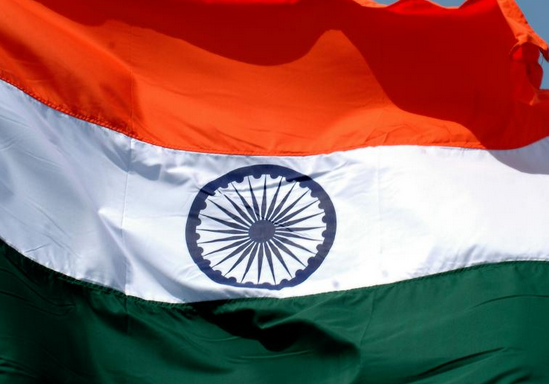
Jul 18, 2016 | News
Indian authorities must immediately, independently and thoroughly investigate all incidents of excessive, particularly lethal, use of force in Kashmir over the past week, the ICJ said today.
Indian security forces have an obligation to comply with Government commitments to avoid using excessive force to quell protests, and must be held to account for any violations.
Violent clashes between protesters and security forces broke out in Kashmir after a popular Kashmiri militant leader, Burhan Wani, was killed, along with his two associates, by security forces on 8 July.
More than 35 people have been killed, including one security officer, and over 2000 injured. In some areas, protestors threw stones and attacked police stations. Security forces used tear gas, pellet guns and firearms.
“Security forces must respect the right to life at all times, and only use force when strictly necessary and in a manner proportionate to the legitimate performance of their duties,” said Sam Zarifi, ICJ Asia Director.
“The number of persons injured over the past week, as well as the nature of their injuries, indicates the urgent need for investigations. If security forces use any kind of weapon, they are governed by international standards that require force to be used as a last resort in self-defence or defence of others against an imminent threat of death or serious bodily injury, and in a manner to minimize injuries,” he added.
Indian security forces began using pellet guns routinely after 2010 following heavy criticism of their misuse of firearms against protesters.
But during the recent protests, the use of pellet guns, considered non-lethal weapons by security forces, has resulted in serious and potentially permanent health consequences for persons affected, including eye injuries and organ damage, which have required urgent treatment.
A recent report has suggested that at least a 100 people have sustained eye injuries. Pellet guns have also injured non-protestors, including children.
“Indian authorities should stop the use of pellet guns until they can assess whether these weapons can be used in a manner that is consistent with human rights standards on the use of force, including whether they are inherently inaccurate, indiscriminate and arbitrary; and ensure that the use of all non-lethal weapons is strictly regulated, because they have the capacity to cause serious and permanent injury,” Zarifi said.
Hospitals in Kashmir are struggling to cope with the high number of patients. There have also been reports that security forces have stopped ambulances carrying injured people, and disrupted the functioning of hospitals.
“All allegations of excessive use of force and other unlawful behaviour by the security forces must be investigated immediately. At the same time, protesters who resort to violence or injure other people must also be properly investigated and brought to justice by proper trials,” he added.
“Security forces absolutely must not interfere with access to health care. In addition to prompt, independent and effective investigations on this, the Government must proactively ensure that all injured persons are able to safely access necessary and quality health care,” he added.
Indian Prime Minister Narendra Modi has called on security forces in Kashmir to exercise “absolute restraint”.
The Chief Minister, Mehbooba Mufti, has committed to ensuring accountability in all cases where excessive force was used by security forces.
It is crucial that the Government follows through on this promise, and conducts thorough, independent and prompt investigations.
In the past, violations by security forces have largely enjoyed impunity in Kashmir for several reasons, including laws like the Armed Forces Special Powers Act that shield security forces from legal accountability for human rights violations.
For example, in 2010, clashes between protestors and security forces in Kashmir resulted in over 100 deaths. Very few, if any, of these have been credibly investigated to date.
Current events also cast doubt over whether the reforms introduced since have improved policing practices and made security forces more accountable.
The ICJ is therefore calling on Indian authorities to:
- Order that security forces desist from using excessive and unlawful force, comply with international human rights law, and only use force when strictly necessary and in a manner proportionate to the legitimate performance of their duty;
- Promptly, independently and effectively investigate all allegations of excessive and lethal uses of force by security forces, make the results of these investigations public, initiate prosecutions where appropriate, and ensure that all victims are provided with effective redress;
- Provide necessary and quality health care to injured persons, ensure they are able to access it, that hospitals are stocked and equipped to deal with the increased patient load, and that all allegations of security forces attacking ambulances and hospitals are immediately investigated.
Contact:
Sam Zarifi, ICJ Regional Director for Asia and the Pacific, t: +66807819002; e: sam.zarifi(a)icj.org
India-Kashmir statement-News-Press release-2016-ENG (full text in PDF)







